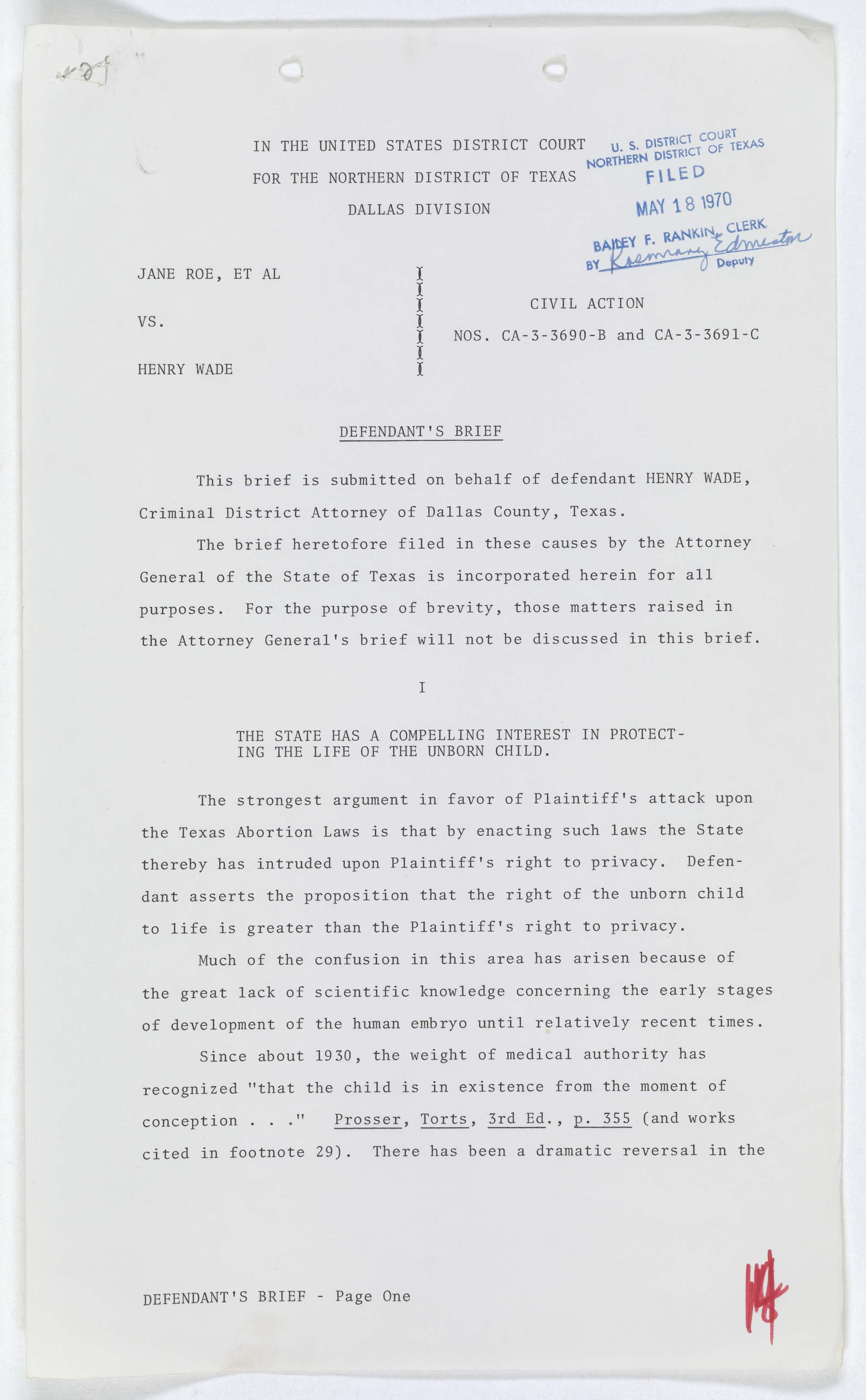Defendant Henry Wade's Brief in Roe v. Wade
5/18/1970
Add to Favorites:
Add all page(s) of this document to activity:

Add only page 1 to activity:
Add only page 2 to activity:
Add only page 3 to activity:
This brief was submitted on behalf of defendant Henry Wade, Criminal District Attorney of Dallas County, Texas, in Roe v. Wade. Texas argued that a woman’s right to privacy is not as important as the unborn child’s right to life — and that states have the right to regulate abortion in order to protect the life of the unborn child.
In Roe v. Wade, plaintiff Norma McCorvey (who filed her case under the alias Jane Roe because she feared the lawsuit would bring unwanted notoriety and invade her personal privacy) claimed that due to financial constraints, a Texas abortion law forced her to decide between bearing an unwanted child and seeking an abortion by unqualified doctors.
The court case remains one of the most controversial U.S. Supreme Court decisions in American history. In a 7–2 decision, the Supreme Court declared that a woman’s right to abortion falls under the constitutional guarantee of privacy, but "this right is not unqualified." The state "in promoting its interest in the potentiality of human life" can regulate abortion after the first trimester of a woman’s pregnancy.
In an unprecedented move, the Court issued a press release along with its opinion emphasizing that it does not promote "abortion on demand." In his dissenting opinion, Justice William Rehnquist chastised the majority for overstepping its authority. The Roe v. Wade decision affected the laws of 46 states.
In Roe v. Wade, plaintiff Norma McCorvey (who filed her case under the alias Jane Roe because she feared the lawsuit would bring unwanted notoriety and invade her personal privacy) claimed that due to financial constraints, a Texas abortion law forced her to decide between bearing an unwanted child and seeking an abortion by unqualified doctors.
The court case remains one of the most controversial U.S. Supreme Court decisions in American history. In a 7–2 decision, the Supreme Court declared that a woman’s right to abortion falls under the constitutional guarantee of privacy, but "this right is not unqualified." The state "in promoting its interest in the potentiality of human life" can regulate abortion after the first trimester of a woman’s pregnancy.
In an unprecedented move, the Court issued a press release along with its opinion emphasizing that it does not promote "abortion on demand." In his dissenting opinion, Justice William Rehnquist chastised the majority for overstepping its authority. The Roe v. Wade decision affected the laws of 46 states.
This primary source comes from the Records of the Supreme Court of the United States.
Full Citation: Defendant Henry Wade's Brief in Roe v. Wade; 5/18/1970; Case File 70-18; Roe v. Wade; Appellate Jurisdiction Case Files, 1792 - 2015; Records of the Supreme Court of the United States, Record Group 267; National Archives Building, Washington, DC. [Online Version, https://docsteach.org/documents/document/defendant-brief-roe-v-wade, April 23, 2024]Rights: Public Domain, Free of Known Copyright Restrictions. Learn more on our privacy and legal page.






